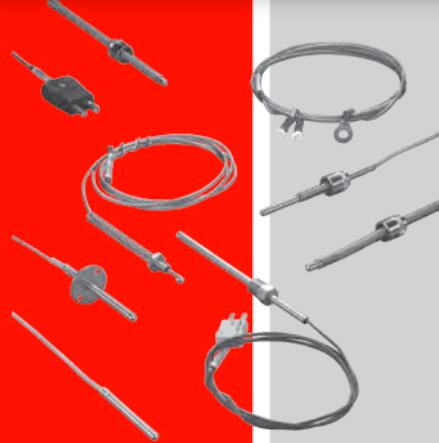

J type thermocouple is a device used for measuring temperatures at extremely high and low ranges. The J type, the k type thermocouple as well as many other types work by utilizing the thermodynamic principle of the conversion of heat energy into electrical energy.
When used, a voltage is created based on the temperature that occurs at either end of the device. Converting the voltage into a readable number allows you to determine the temperature of the material you are working with.
Thermocouple Composition
Two wires are used, and one side of the device has the wires spread apart or “open,” while the other side has the wires connected. Each thermocouple wire is made of a different material, which is what allows for a detectable voltage difference between the two wires.
By keeping the open end of the thermocouple at a constant reference temperature and using a microprocessor reading device, you can see the temperature of whatever material the connected end is submerged in by reading the voltage created at different temperatures.
Thermocouples are well-suited for industrial uses, but there are many different types. Choosing the right thermocouple for your needs requires some knowledge of the differences between the various types. While some thermocouples are more specialized to specific temperature ranges and thus tend to be more expensive, a J type thermocouple occupies the middle of the potential temperature ranges.
Type J thermocouples are ideal for applications where the temperatures measured will not exceed 750°C, and can be reliable for temperatures as low as 0°C. As most general industrial applications fall within this range, type J thermocouples are commonly used, especially as they are more affordable than most.
Understanding Thermocouple Temperature Ranges
A key part of what makes the different types of thermocouples differ so much in the temperature ranges they can effectively read and in their costs is the material that the wires are made from. For example, a type B thermocouple is made of platinum and rhodium and can measure temperatures ranging from 871 to 1704°C due to the incredible heat resistance of these materials.
A type T thermocouple is made of copper and constantan, and while it has a much lower range, coming in at 0 to 350°C, it also provides very stable readings. You are more likely to see a type B used for work with metals, while a type T is typically used in cryogenics.
A J type thermocouple range falls between these two extremes. As mentioned above, it can read temperatures from 0 to 750°C, and this is due to its composition of iron and constantan. The Curie point of iron is 770°C, at which point the magnetic field of the iron wire begins to change its behavior, causing any voltage readings to be unreliable.
Even though the structure of the thermocouple will remain intact at temperatures up to 1200°C, it should not be used at temperatures above 750°C. You are more likely to see J types being used in electric furnaces, as well as in the production of resins and plastics.
We Have What You Need
Whether you are looking for a J type thermocouple or another kind, we provide for your needs at Hi-Watt Inc. Not only do we provide the thermocouples themselves, but we also provide different fittings that can refine or expand the range of your device. In addition, we provide connection heads, jack panels, mini connectors and standard connectors.
While some suppliers provide the thermocouples but leave you to find the right temperature sensor to read its output, we carry the right sensor for every type of thermocouple we sell.